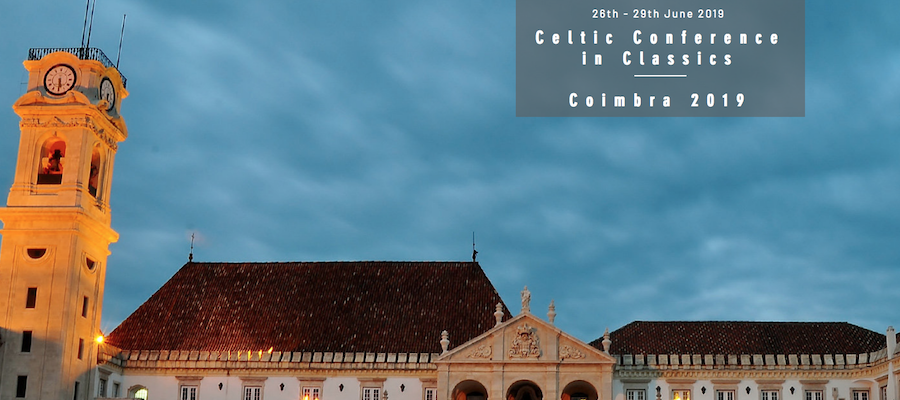Transition and Transformation: The Early Reception of the Greek and Roman Inheritance (3th-8th c. CE), session at the Celtic Conference in Classics, University of Coimbra, June 26–29, 2019
As is well known, the Greek and Roman civilization underwent a period of transition between the 3rd century and the 8th century. Through a complex process of transformation and adaptation to new demands, the Greek and Roman inheritance was preserved in many different forms and could fulfill new functions in the various regions of the Empire.
Although many administrative and legal reforms had been implemented from the 3rd century onwards, there was always an ideal continuity with the Roman past and its institutions. One of the main consequences of the reforms of Diocletian and Constantine was the widespread adoption of Roman government practices and status standardization of the provinces, so that even in multicultural contexts (e.g. Egypt and Asia Minor) the influence of Graeco-Roman culture became more and more evident. At the same time, the regions of the Empire developed a certain degree of autonomy, and in the provincial cities new social and ethnic players (e.g. ‘barbarians’ or Christian bishops) started to be involved in the local political life, taking up the Graeco-Roman inheritance of civic engagement.
The extent to which Greek and Latin inheritance was filtered and re-shaped in different contexts can be fully measured in the regions where local cultures emerged under the surface of the overwhelming Greek and Roman culture. This is quite apparent in the case of written languages that appeared for the first time in literary and/or epigraphic sources during Late Antiquity (e.g. Coptic in Egypt, and Syriac in the Eastern provinces). In this multifaceted phenomenon, Christian religion played a pivotal role, assuming and readapting (in a multilingual context) the oecumenical ‘spirit’ of the Graeco-Roman culture.
The aim of this panel is to compare results of different researches about Graeco-Roman inheritance in different geographical areas and in different languages, in order to achieve a multidisciplinary and innovative perspective on the way classical culture was received.
This panel welcomes papers dealing with (but not limited to):
- reaction of local culture and society to Greek and Roman influence (e.g. hybridization, foreignization, naturalization, and domestication, …)
- influence of classical παιδεία on foreign literatures (e.g. Coptic, Syriac, Arabic, Armenian, Ethiopian, and Georgian)
- translations of classical texts into other languages and adaptations (metaphrasis, paraphrasis, …) of Greek and Latin works
- Greek and Roman myths and saga filtered and/or re-invented by local folklore, literature, and art
- Christianization of classical and pagan inheritance
- reshaping Greek and Roman models and styles in local art (architecture, painting, sculpture, and minor arts)
- spread of institutions and law of the Empire in local contexts and their different developments
Each paper (25 minutes) will be followed by a 10-minute discussion. Abstracts must not exceed 300 words. The submission deadline for abstracts is 28th February 2019. Please include a short biography and specify your affiliation. Submissions should be sent to greekandromaninheritance@gmail.com.
Panel organizers:
Giulia Agostini (Sapienza – University of Rome)
Elisa Nuria Merisio (Sapienza – University of Rome)
Anna Salsano (Sapienza – University of Rome)
Emanuele Zimbardi (Sapienza – University of Rome and Freie Universität Berlin)
